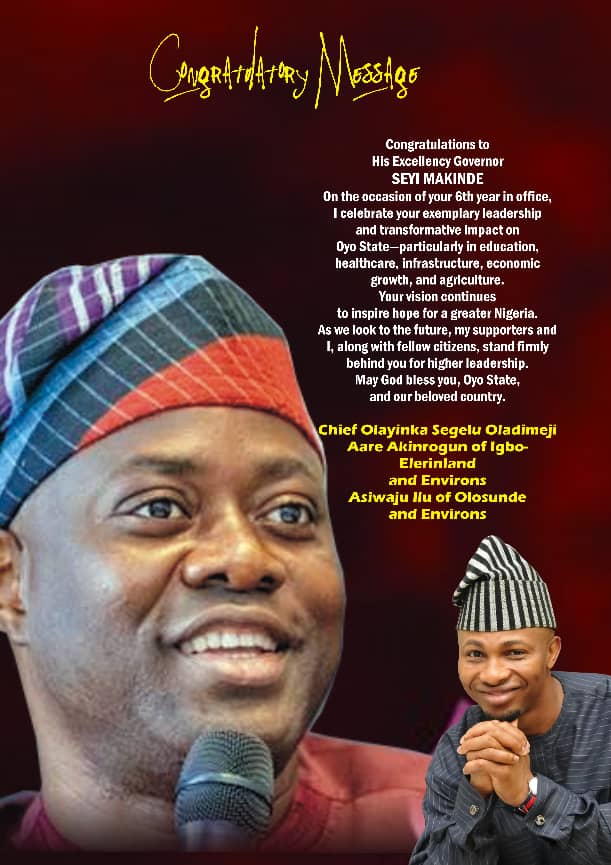In what appears to be a strong advice to Tinubu’ incoming government, the outgoing Minister of State for Labour and Employment, Festus Keyamo, SAN, on Wednesday disclosed the anomaly in the appointment of Ministers if state in forming cabinet.
Keyamo stated this in the speech he gave during the valedictory session presided over by President Mohammadu Buhari to mark the end of the Federal Executive Council, FEC, under his (Buhari) administration, at the Council Chamber, Presidential Villa, Abuja.
The Minister of State, who also served as spokesperson for Tinubu’/Shettima Campaign Council, thanked President Buhari for enriching his Curriculum Vitae, through the appointment, however noted that some other Ministers of State, have been grumbling and unable to be bold and speak out.
According to him, the concept or designation of “Minister of State” is a constitutional aberration and unworkable for the occupier of the positions.
Keyamo speech read this, prepared “Mr. President, you first appointed me as Minister of State in the Ministry Niger Delta Affairs in August, 2019 and you later redeployed me as Minister of State in the Ministry of Labour and Employment.
“Today, I cannot find the words to express the depth of my gratitude to you for finding me worthy, out of over two hundred million Nigerians, to be nominated and subsequently appointed to serve as a Minister of the Federal Republic of Nigeria. My curriculum vitae has been greatly enhanced – forever.
“From my very humble beginnings in a small dusty town in Delta State where I was born and raised by my struggling parents, all the way to the Council Chambers at the Presidential Villa where I had the honour and privilege to participate weekly in decision-making for my country in the last four years, it has been like a fairy tale. I give God all the glory.
“What I am about to say, therefore, is not and should not be construed as an indication of ingratitude. Far from it. What I am about to say is just my own little contribution to our constitutional development as a relatively young democracy and to aid future governments to optimize the performance of those they appoint as Ministers.
“Mr. President, the concept or designation of “Minister of State” is a constitutional aberration and is practically not working for many so appointed. Successive governments have come and gone and many who were appointed as Ministers of State have not spoken out at a forum such as this because of the risk of sounding ungrateful to the Presidents who appointed them. However, like I said earlier, this is not ingratitude.
“As a private citizen, I am on record to have gone to court a number of times to challenge unconstitutional acts of governments for the sake of advancing our constitutional democracy, so it will be out of character for me to have gone through government and be carried away by the pomp of public office and forget my role as a member of the Inner Bar and my self-imposed role over the years as a crusader for democracy and constitutionalism.”
Supporting his position with the provisions of the 1999 Constitution (as amended), Keyamo said, “Mr. President, I crave your indulgence to explain this constitutional conundrum of “Minister of State”. Sections 147 and 148 of the 1999 Constitution of the Federal Republic of Nigeria (as amended), deal with the appointments and responsibilities of Ministers of the Federation. The said sections state as follows:
Section 147
“(1) There shall be such offices of Ministers of the Government of the Federation as may be established by the President.
“(2) Any appointment to the office of Minister of the Government of the Federation shall, if the nomination of any person to such office is confirmed by the Senate, be made by the President.
(3) Any appointment under subsection (2) of this section by the President shall be in conformity with the provisions of section 14(3) of this Constitution:- provided that in giving effect to the provisions aforesaid the President shall appoint at least one Minister from each State, who shall be an indigene of such State.”
Section 148
“(1) The President may, in his discretion, assign to the Vice-President or any Minister of the Government of the Federation responsibility for any business of the Government of the Federation, including the administration of any department of government.”
“Furthermore, the 7th Schedule to the 1999 Constitution provides for the Oath of Office to which each Minister must subscribe. There are no different Oaths for “Minister” and “Ministers of State”. They all take the same Oath of Office.
“In addition to the above, the Ministers-designate appear before the Senate and are grilled and cleared AS MINISTERS, not as Ministers in some instances and Ministers of State in some other instances. It is at the point of assignment of portfolios that successive Presidents then reclassified some as “Ministers of State.”
He said despite presidential power to appoint member of his cabinet, yet such appointment must be in line with the constitutional provision.
He said, “Some may want to justify this by saying the President is given the discretion by the Constitution to assign whatever responsibility(ies) he likes to Ministers. Yes, I concede Mr. President can do that, but not by a designation different from that prescribed by the Constitution.
“Simply put, it is akin to the President assigning responsibilities to the office of the Vice-President and re-designating that office as “Deputy President” under our present Constitution. That is clearly impossible. Why then should that of the Ministers be different?
“What is more, Ministers are appointed pursuant to Section 147(3) of the 1999 Constitution to represent each State of the Federation. Therefore, Ministers sit in Cabinet as the eye of Mr. President in each State of the Federation. It is therefore against the intendment of the drafters of our Constitution for a representative of a State to be reclassified as against another representative of another State.
“The Schedules of Duties of Ministers and Ministers of State that intend to cure some of these anomalies hardly help the issues. Firstly, the Schedules of Duties are observed more in breach by the Permanent Secretaries and Directors who really cannot be expected to serve two masters.
“And in any case, many of the roles of both Ministers are so ambiguous that the bureaucrats would always interpret them to satisfy the ones they see as the “Senior Ministers” or “main Ministers” for fear of being persecuted by them.
“Secondly, parts of the Schedules of Duties seem to suggest that the Ministers can delegate functions to the Ministers of State. This is a constitutional impossibility. It is only Mr. President that can delegate Presidential powers as one cannot delegate what he does not have (delegatus non potest delegare). In any case, how can someone who took the same Oath of Office with another delegate functions to that other?
“Thirdly, the Schedules of Duties leave so many gaping holes that bring conflicts between the Ministers and Ministers of State. In addition, the provision that “Ministers of State” cannot present Memos in Council, except with the permission of the Minister, is another anomaly. It means the discretion of the Minister of State is subsumed in the discretion of the Minister, yet both of them represent different States in Cabinet.
“It also follows that it would be difficult to assess the individual performances of the Ministers of State since their discretion is shackled under the discretion of the Ministers. Original ideas developed by a Minister of State are subject to clearance by another colleague in Cabinet before they can sail through for consideration by Council. The drafters of our Constitution obviously did not intend this.”
“As a result, many Ministers of State are largely redundant, with many going to the office for symbolic purpose and just to while away the time. Files are passed to them to treat only at the discretion of the other Minister and the Permanent Secretary. Yet, the Ministers of State will receive either praise or condemnation for the successes or failures of such Ministries.
“I understand that when this practice first surfaced in the First Republic, it was used as a contraption to give a semblance of “Government of National Unity”, when in actual fact no “real power” was ceded to the opposition members co-opted into government who were mostly designated as the Ministers of State, so as to keep them in check under the leadership of the ruling Party’s Ministers.
“But, over time the custom has come to stay and now it has been established as a norm, even regarding Ministers from the same ruling Party. In fact, one political absurdity that has emerged from this is that some Ministers of State won more votes from their States for the party in power than the “main Minister”.
He noted various retreats held in the past to address the conflicts arise in the functionalities of senior and junior ministers which had yielded no result.
“Many Ministerial Retreats have been held to try and resolve the issues between Ministers and Ministers of State. President Obasanjo held four of such Retreats, with the last one holding at the National Institute for Policy and Strategic Studies (NIPSS), Kuru, Jos, from 23rd to 25th February, 2001. Yet, the problems persisted.
“Mr. President, unknown to many successive Presidents and the general public, these conflicts gravely affect the optimal performance of Governments. What is the way forward?
“Obviously, the argument that two Ministers are cramped into some Ministries in order not to unnecessarily proliferate Ministries and therefore save Government’s money is no longer tenable. This is because Government does not need any extra infrastructure or more money to maintain all Senior 36 Ministers or even a bit more appointed as is now the custom.
“This is because the present Ministers and Ministers of State have their separate offices, cars, security personnel and personal aides. So, what is the point?
“There are enough Permanent Secretaries within the system to be assigned to each Minister, or in the least, one Permanent Secretary can serve two Ministers. Since the Schedules of Duties of both Ministers already reflect the broad Mandates of the Ministries, the Ministers can be named in line with those Schedules of Duties, instead of continuing with this unconstitutional arrangement. For instance, there is no reason why we cannot have a Minister of Labour and another Minister of Employment.
“In my case, whilst the Schedule of my colleague had to do more with Labour and Productivity, mine had to do more with Employment. The Directorates in my Ministry that were under my office would then be fully under the Minister of Employment, without any double loyalty to the Minister of Labour and Productivity.
“We can also have a Minister of Trade and another Minister of Investment. We can have a Minister of Education (Tertiary) and another Minister of Education (Primary and Secondary); we can have a Minister of Mines and another Minister of Steel; we can have a Minister of Works and another Minister of Housing and so on and so forth.
“In all of these, no extra infrastructure is needed to sustain this suggested arrangement. The present infrastructure and present personnel in the Ministries can very well sustain it. It will be at no extra cost to government. This is preferable than successive governments continuing with this present unconstitutional arrangement.
“Finally, I want to place it on record again that Mr. President gave me maximum support as his Minister to function optimally. So, this treatise is not a personal complaint. This is just a respectful recommendation for record purposes and for the sake of posterity. It is also intended to correct an anomaly that has existed for ages.


